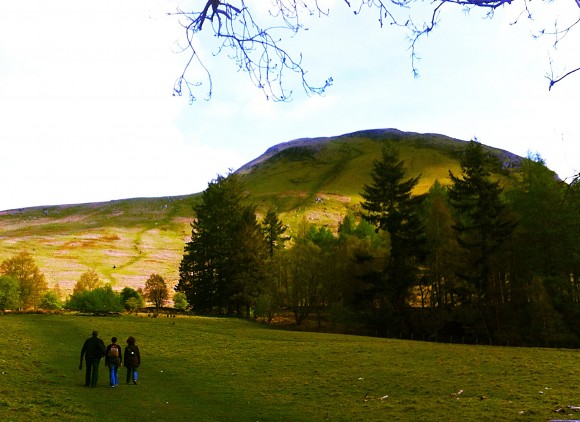I’ve always been a fan of birthdays. Mine falls on June 20th. Last year, I had a wonderful celebration. It wasn’t just because of the presents – I got to spend the weekend in the countryside with my closest friends, enjoying all that nature has to offer.
This year, however, my birthday will be memorable for a different reason. I’ll be in Rio de Janeiro – and it will be the day the Rio+20 Earth Summit begins, when all the Heads of State and Ministers arrive. From the UK, Deputy Prime Minister Nick Clegg and Caroline Spelman, Secretary of State for the Environment will be taking part. Civil servants like me will probably have arrived a few days earlier, preparing draft compromises on the negotiating text, talking to stakeholders, finalising logistics for the various events taking place around the negotiations, and so on.
All this activity will be taking place because 20 years ago, at the first ever Earth Summit, the international community agreed to find ways to halt pollution and the destruction of natural resources. But sufficient progress has not been made. The relationship between economic growth and environmental damage has remained stubbornly coupled. The next Earth Summit will offer an opportunity for governments, businesses and individuals to consider simple yet radical ways to make sure growth continues without hurting the environment. It’s highly ambitious but, unfortunately, urgent and necessary.

But there’s yet another reason my birthday will be memorable this year. On 20th June, the UK will host an event on “GDP+” or “beyond GDP”, the subject of a debate I took part in a few weeks ago at the Natural History Museum. As a development economist, “GDP+” is close to my heart. The 2009 report from the eminent economists Stiglitz, Sen and Fitoussi (also published as a book called Mis-Measuring Our Lives) made clear that few economists have ever seen GDP as the only way to measure and check how well society is progressing. GDP provides us with necessary information, but not sufficient information – and certainly not sufficient information to deliver green growth, poverty reduction or sustainable development.
Indeed, measuring just one outcome in most areas of life isn’t sensible, nor is it something we tend to do. Take birthdays. After the age of ten, few people measure how good their birthdays are just by the size of the presents they receive. Of course we want presents… it’s disappointing if we don’t get any. But we also care about the type of presents we get, and other aspects of the day. If we get expensive but impersonal presents, or if we have no company all day, we feel somewhat empty. Presents are important, but they’re not everything. If we can acknowledge this need to think beyond one indicator for something as simple as birthdays, why is it then that when it comes to economies, we are comfortable with simply looking at one indicator, GDP? It simply isn’t sensible. This is why Stiglitz et al were so clear that we should look at our economies in a more holistic way.
When governments have looked at their economies holistically, they’ve had great results. Since the 1980s, Botswana has used environmental values to guide its spending. The government estimates how far its natural resources are being depleted due to mining, makes sure the revenues from mining are large enough to match this depletion, and re-invested the revenues in long-term development, so as to build up other kinds of resources. It has paid off – between 1990 and 2010 Botswana’s per capita GDP rose by almost 60%, alongside strong gains in education and health. No wonder Botswana believes further action on green growth at Rio+20 will be in its interest.
That’s why we’ll be hosting the GDP+ event and why we’ve published a technical paper this week reviewing the different approaches to GDP+ that governments can use. We also realise that many governments in low-income countries have capacity limitations – just estimating GDP is often hard enough. So we will also be discussing the Wealth Accounting and Valuation of Ecosystems Services (WAVES) Partnership at the event. WAVES was set up to enable developing countries to try out this work and share experiences with others that are doing the same, such as the UK.
As an economist, I’m really excited Rio+20 offers an opportunity to make progress on this area – it’s simple, but radical. For too long economists have focused on just GDP. It’s high time we added other indicators, especially environmental ones, to measure progress. And with less than 50 days to go, I’m even more excited that this could all take place during and around my birthday. What an unusual treat!
This blog post was featured on E2B Pulse – the website of the UK carbon reduction network.
